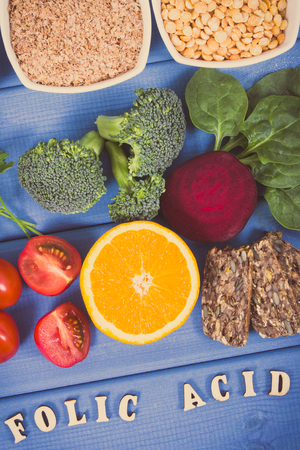Introduction to Processed Foods in the UK
When considering the relationship between diet and health, processed foods play a significant role in the daily lives of people across the United Kingdom. In the British context, processed foods encompass a wide spectrum, from minimally altered items such as sliced bread and cheese, to highly processed products like ready meals and crisps. These foods are often found not only in major supermarket chains—such as Tesco, Sainsbury’s, and Asda—but also fill the shelves of local convenience shops and kitchen cupboards up and down the country.
The term “processed” refers to any food that has been modified from its original form for preservation, safety, convenience, or taste enhancement. This includes adding salt, sugar, oils, preservatives, or artificial ingredients. Common examples familiar to most British households include baked beans, sausages, packaged sandwiches, breakfast cereals, tinned soups, frozen chips (fries), and a variety of confectionery and snack bars. Even traditional favourites like Scotch eggs and pork pies fall into this category due to their processing methods.
While some level of processing can be beneficial—for instance, pasteurisation making milk safer to drink—the majority of highly processed foods tend to be higher in salt, saturated fat, and added sugars. These characteristics have raised concerns regarding their potential impact on overall health, especially when it comes to recovery from illness or injury and managing inflammation within the body. This article will explore how these commonly consumed processed foods might influence recovery processes and inflammatory responses specific to the British dietary landscape.
2. Nutritional Content of British Processed Foods
When considering the impact of processed British foods on recovery and inflammation, it is essential to examine their typical nutritional profile. Many foods commonly found on UK supermarket shelves—such as sausage rolls, packaged sandwiches, ready meals, and crisps—are characterised by certain key nutrients and additives that warrant scrutiny in the context of health and recovery.
Key Nutrient Profile: Salt, Sugar, Fats, Additives, and Preservatives
Processed foods in Britain often contain elevated levels of salt, sugar, and unhealthy fats. The widespread use of additives and preservatives further complicates their nutritional quality. Here’s a breakdown of these elements in some popular British processed foods:
| Food Item | Salt (per 100g) | Sugar (per 100g) | Saturated Fat (per 100g) | Additives/Preservatives |
|---|---|---|---|---|
| Pork Sausage Roll | 1.5g | 1.0g | 10.0g | Sodium nitrite, emulsifiers |
| Packaged Cheese & Onion Crisps | 1.3g | 0.4g | 2.6g | Flavour enhancers, antioxidants |
| Microwaveable Chicken Tikka Masala | 1.0g | 4.8g | 4.5g | Preservatives (E250), colourings |
| Bottled Soft Drink (Cola) | 0g | 10.6g | 0g | Sugar substitutes, acidity regulators |
| White Sliced Bread (pre-packaged) | 0.9g | 3.4g | 0.7g | Dough conditioners, preservatives (calcium propionate) |
The Role of Salt and Sugar in Inflammation and Recovery
The high salt content commonly found in processed British foods can contribute to water retention and elevated blood pressure, both of which may impede recovery after injury or exercise. Likewise, excessive sugar intake can promote systemic inflammation—an obstacle for those aiming to optimise healing or manage chronic inflammatory conditions.
Additives and Preservatives: Potential Hidden Triggers?
Additives such as sodium nitrite (used in cured meats) and artificial colourings have come under scrutiny for their potential pro-inflammatory effects. While they prolong shelf life and enhance flavour or appearance, emerging research suggests they might exacerbate inflammatory processes or disrupt the gut microbiome—a crucial factor in immune response and recovery.
In summary, the typical nutrient composition of processed foods widely consumed in Britain includes high levels of salt, sugar, saturated fats, and a variety of additives. These components collectively may have a detrimental impact on inflammation control and the body’s ability to recover effectively from illness or physical exertion.

3. Relationship Between Processed Foods, Recovery, and Inflammation
Exploring the connection between processed British foods and the body’s ability to recover—whether from illness or physical exertion—reveals a complex interplay involving inflammation and nutritional quality. Processed foods commonly found in the UK, such as ready meals, packaged sandwiches, crisps, and certain breakfast cereals, often contain high levels of refined sugars, saturated fats, salt, and various additives.
When these foods form a significant part of one’s diet, their nutritional profile may hinder optimal recovery. During recovery, whether after a cold or a strenuous workout, the body requires adequate vitamins, minerals, protein, and healthy fats to repair tissues and support immune function. However, many processed options are low in essential nutrients while being calorie-dense—a combination that can slow healing processes or even contribute to further health issues.
Inflammatory Effects of Processed Foods
Research suggests that regularly consuming highly processed foods can trigger chronic low-grade inflammation. This is often due to the presence of artificial trans fats, excess sodium, and added sugars. For example, trans fats—found in some biscuits and pastries—can increase inflammatory markers in the blood. Similarly, high sugar intake has been linked with elevated levels of C-reactive protein (CRP), an indicator of inflammation.
The Role of Additives and Preservatives
Many British processed foods include additives such as emulsifiers and preservatives to prolong shelf life and enhance taste. While generally recognised as safe in small amounts, there is ongoing debate about their long-term impact on gut health and inflammation. Some studies indicate that certain emulsifiers may disrupt the gut microbiota, potentially contributing to inflammatory responses.
Nutritional Gaps and Recovery Outcomes
In summary, relying heavily on processed foods can create nutritional gaps precisely when the body needs robust support for recovery. The lack of antioxidants and anti-inflammatory nutrients—commonly found in whole fruits, vegetables, nuts, and seeds—means the body’s natural defences are not fully supported during periods of stress or repair. By understanding these relationships, individuals can make more informed choices about including or limiting processed British foods as part of a balanced approach to health and wellbeing.
4. Case Studies: British Eating Habits and Health Outcomes
In recent years, several UK-based studies have highlighted the strong connection between processed food consumption and both recovery rates and inflammation among British populations. Researchers from the University of Cambridge and Kings College London have conducted large-scale cohort studies examining dietary patterns and their subsequent impact on public health. Notably, these investigations reveal a consistent trend: higher intake of ultra-processed foods correlates with delayed recovery from common illnesses, as well as increased markers of chronic inflammation.
Findings from Recent UK-Based Reports
A 2023 study published in the British Medical Journal evaluated over 20,000 adults across England. The study found that individuals whose diets comprised more than 50% processed foods experienced an average of 30% longer recovery times from viral infections compared to those consuming minimally processed diets. Additionally, blood tests showed elevated levels of C-reactive protein (CRP), a biomarker for systemic inflammation, among frequent consumers of ready meals, savoury snacks, and sweetened beverages.
Summary of Key Findings
| Study/Report | Main Processed Foods Involved | Health Outcome |
|---|---|---|
| BMJ 2023 Cohort Study | Ready meals, crisps, sugary drinks | Prolonged recovery; high CRP levels |
| NHS Digital Survey 2022 | Baked goods, processed meats | Increased inflammation markers |
| Kings College London Analysis | Savoury snacks, packaged sandwiches | Poor wound healing rates |
Cultural Insights: British Eating Patterns
The prevalence of processed food consumption in Britain is partly rooted in convenience culture and longstanding culinary traditions. For example, the popularity of “meal deals” in supermarkets—typically featuring a sandwich, crisps, and a fizzy drink—contributes significantly to daily intakes of additives, salt, and refined sugars. Community health reports consistently warn that such eating habits not only slow physical recovery but also exacerbate low-grade inflammation throughout the population.
This growing body of evidence underscores the urgent need for targeted public health interventions and dietary education tailored to British preferences and lifestyles. Encouragingly, some local councils are trialling initiatives aimed at reducing processed food availability in schools and hospitals, with early signs pointing towards improved health outcomes.
5. Alternatives and Recommendations for Recovery
When considering recovery from illness or physical exertion, as well as managing chronic inflammation, the reduction of processed British foods is a practical strategy. Many popular UK staples—such as ready meals, white bread, crisps, and processed meats—are high in additives, refined sugars, and saturated fats that can hinder the body’s natural healing processes. Here are some culturally appropriate alternatives and recommendations to help support better recovery and reduce inflammation.
Prioritise Whole Foods
Opt for whole, minimally processed ingredients wherever possible. For example, replace white bread with wholegrain or seeded varieties, which provide more fibre and nutrients. Choose fresh or frozen vegetables over tinned options that often contain added salt and preservatives. Swapping out sugary breakfast cereals for traditional porridge oats or Weetabix can also make a noticeable difference in reducing inflammatory triggers.
Cook at Home Using Traditional Recipes
Preparing meals at home allows for greater control over ingredients. Classic British dishes like shepherd’s pie, fish stew, or roasted root vegetables can be made with wholesome ingredients and less reliance on pre-packaged sauces or seasonings. Herbs such as parsley, thyme, and rosemary not only add flavour but are also known for their anti-inflammatory properties.
Choose Lean Proteins
Instead of processed meats like sausages or bacon, opt for lean protein sources such as fresh fish (e.g., mackerel, salmon), skinless chicken breast, or plant-based options like lentils and beans. These proteins support muscle repair without the pro-inflammatory effects of excessive saturated fats and preservatives found in many processed meats common in the British diet.
Snack Sensibly
Replace crisps and biscuits with healthier snacks such as unsalted nuts, fruit slices, or oatcakes. These options offer sustained energy release and valuable micronutrients to aid recovery while keeping inflammatory markers in check.
Embrace Local Produce
The UK has a wealth of seasonal produce that can form the basis of an anti-inflammatory diet. Incorporate berries (like strawberries and blackcurrants), leafy greens (such as kale and spinach), and root vegetables (carrots, swede) into daily meals. Supporting local farmers’ markets not only boosts nutrition but also aligns with sustainable eating habits.
Mindful Eating Habits
Avoid rushing meals and focus on portion control to prevent overeating. Drinking water or unsweetened herbal teas instead of sugary drinks helps reduce overall sugar intake—a key contributor to inflammation.
Summary of Practical Strategies
- Swap processed foods for wholefood alternatives
- Recreate traditional recipes using fresh ingredients
- Select lean proteins over processed meats
- Snack on nuts, fruit, or oatcakes instead of crisps
- Include more seasonal British produce
By making these small yet meaningful changes to the typical British diet, it is possible to enhance recovery times and mitigate inflammation without sacrificing cultural food preferences.
6. Conclusion and Future Perspectives
The relationship between processed British foods, recovery, and inflammation is a topic of growing concern within both the scientific community and everyday households. This review has highlighted that a high intake of ultra-processed foods—characterised by additives, preservatives, and refined sugars commonly found in many British staples—can adversely affect the body’s recovery mechanisms and exacerbate inflammatory responses. While traditional British cuisine has evolved to incorporate more convenient and shelf-stable options, this shift often comes at the expense of nutritional quality. The evidence suggests that individuals who regularly consume processed foods may face slower recovery after physical activity or illness, along with heightened risks for chronic inflammatory conditions such as arthritis, cardiovascular disease, and metabolic disorders.
Looking ahead, there is an urgent need for further research tailored to the unique dietary habits and food environment in the UK. Large-scale longitudinal studies could provide clearer causal links between specific processed food categories and health outcomes across diverse British populations. Additionally, innovative public health strategies—such as clearer food labelling, reformulation of popular products, and culturally relevant nutrition education—will play a crucial role in shifting consumption patterns. As consumer awareness grows, there is also potential for the food industry to respond with healthier ready-made options that retain convenience without compromising on health.
Ultimately, tackling the negative impact of processed foods requires a collaborative approach involving researchers, healthcare professionals, policymakers, and consumers. With further inquiry and a collective commitment to change, it is possible to create a future where the convenience of modern British diets does not come at the cost of long-term health and well-being.


